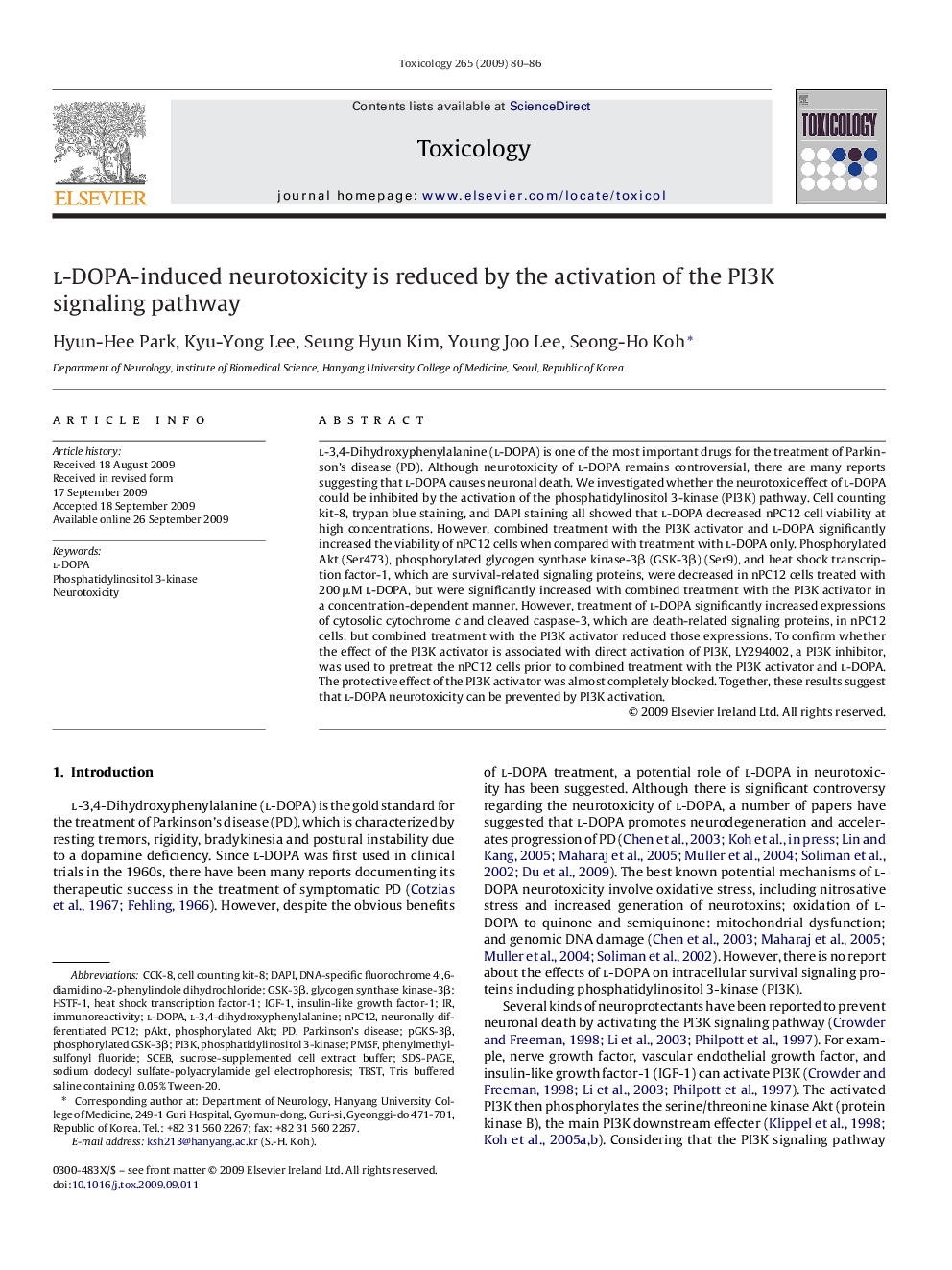| Article ID | Journal | Published Year | Pages | File Type |
|---|---|---|---|---|
| 2596647 | Toxicology | 2009 | 7 Pages |
l-3,4-Dihydroxyphenylalanine (l-DOPA) is one of the most important drugs for the treatment of Parkinson's disease (PD). Although neurotoxicity of l-DOPA remains controversial, there are many reports suggesting that l-DOPA causes neuronal death. We investigated whether the neurotoxic effect of l-DOPA could be inhibited by the activation of the phosphatidylinositol 3-kinase (PI3K) pathway. Cell counting kit-8, trypan blue staining, and DAPI staining all showed that l-DOPA decreased nPC12 cell viability at high concentrations. However, combined treatment with the PI3K activator and l-DOPA significantly increased the viability of nPC12 cells when compared with treatment with l-DOPA only. Phosphorylated Akt (Ser473), phosphorylated glycogen synthase kinase-3β (GSK-3β) (Ser9), and heat shock transcription factor-1, which are survival-related signaling proteins, were decreased in nPC12 cells treated with 200 μM l-DOPA, but were significantly increased with combined treatment with the PI3K activator in a concentration-dependent manner. However, treatment of l-DOPA significantly increased expressions of cytosolic cytochrome c and cleaved caspase-3, which are death-related signaling proteins, in nPC12 cells, but combined treatment with the PI3K activator reduced those expressions. To confirm whether the effect of the PI3K activator is associated with direct activation of PI3K, LY294002, a PI3K inhibitor, was used to pretreat the nPC12 cells prior to combined treatment with the PI3K activator and l-DOPA. The protective effect of the PI3K activator was almost completely blocked. Together, these results suggest that l-DOPA neurotoxicity can be prevented by PI3K activation.
